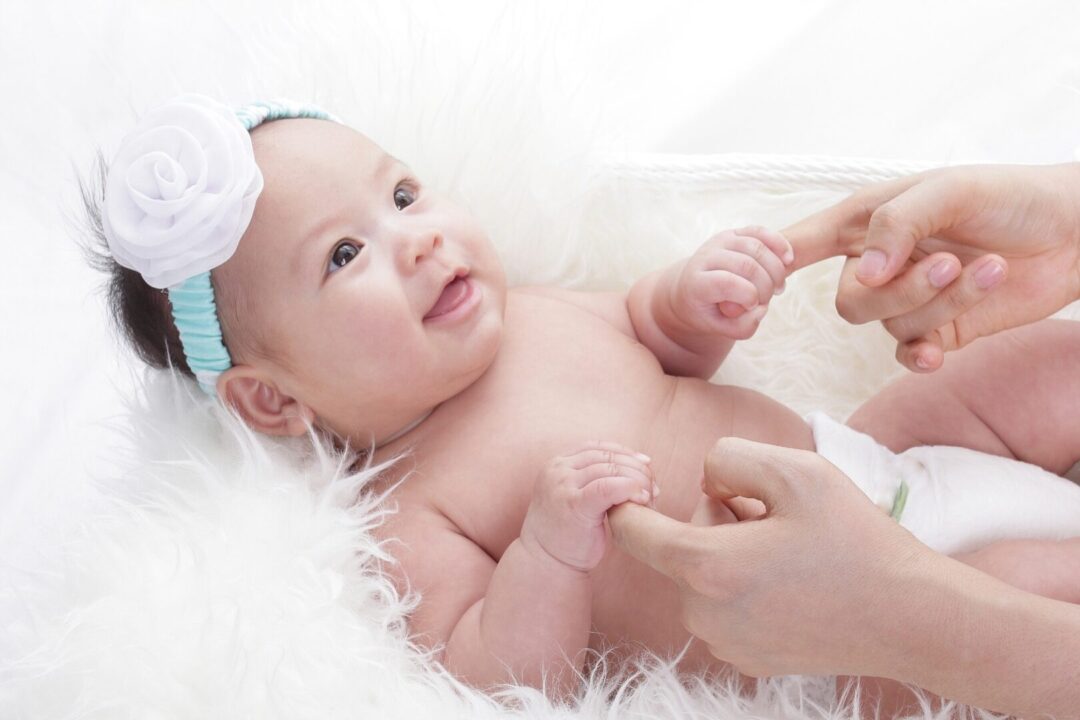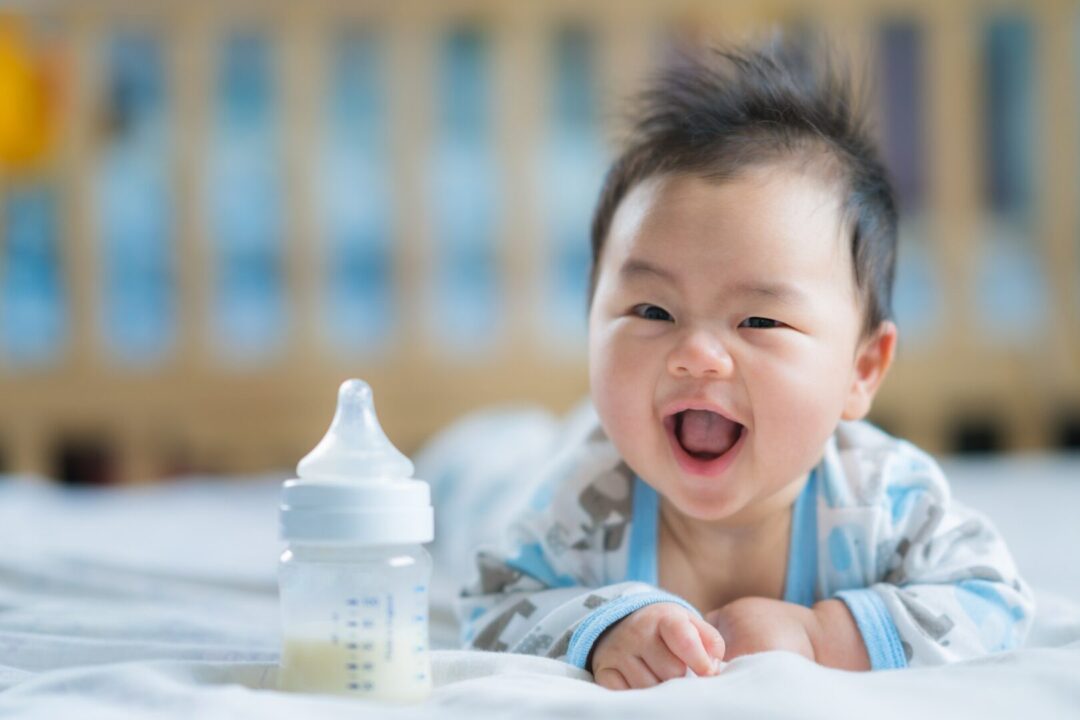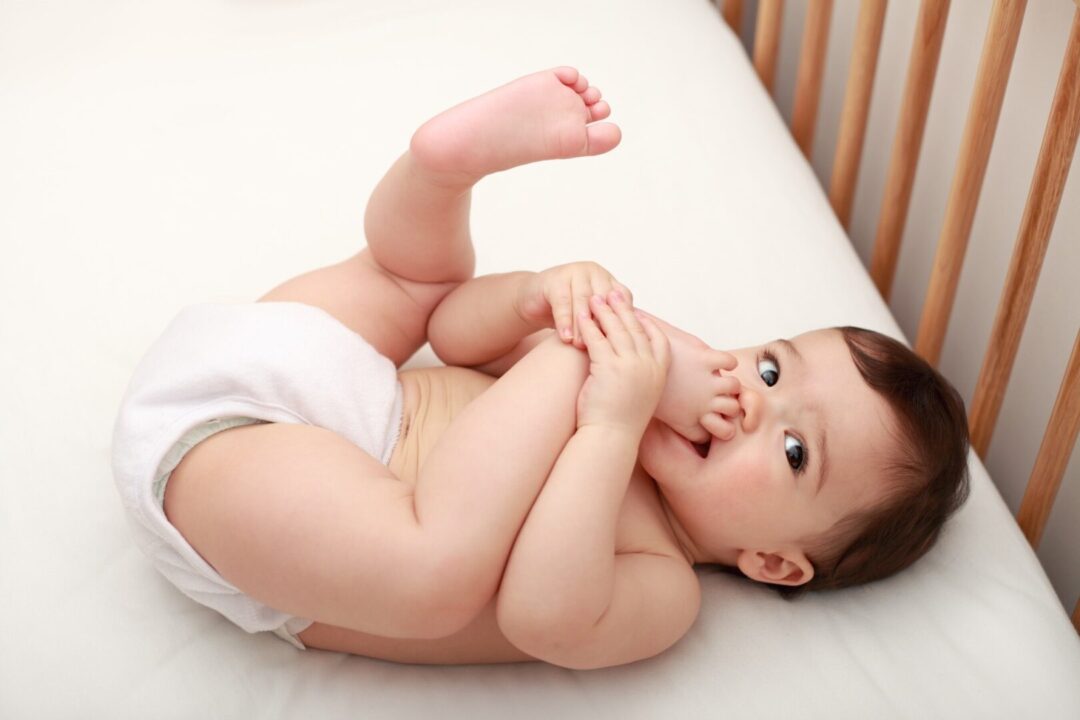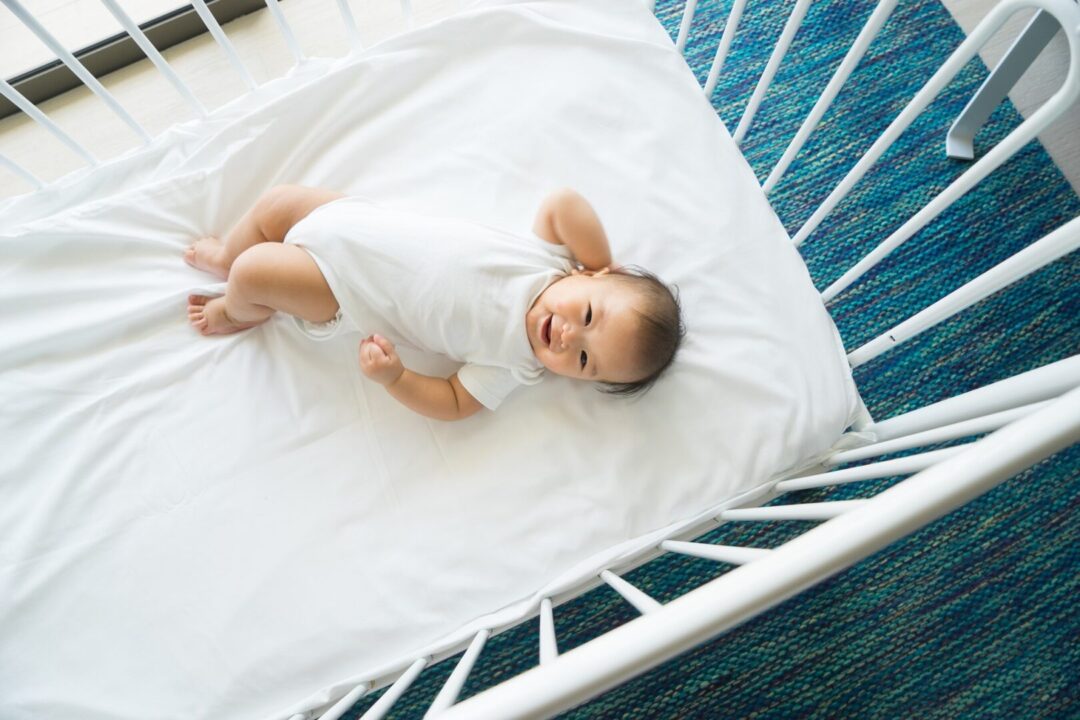For every parent, your world would usually revolve around your baby’s development, both physically and mentally. Buying the best milk formula for optimum nutrition, educational toys, bonding and limiting screen time are ways that parents encourage the growth of their bundle of joy. Babies grow quite rapidly and this is especially within their first year! Thus, we will be focusing more on baby’s milestones up to their first birthday.
Milestones refer to motor development, language development and social or emotional development. Mostly, babies would tend to have the same progression as others but no two babies would reach the same milestone at the same time. Some babies may spend more time at one stage before moving on to the other.
1 month
- Mouthing reflexes where a baby would automatically begin to suck when their mouth or lips are touched.
- Grasping a finger or object when placed in the baby’s palm. Strongest during baby’s first two months, this reflex will usually fade away by the sixth month.

- By the end of the first month, baby should raise their head when on their tummies, keep hands balled in tight fists, looks at objects and focuses eight to 12 inches (up to 30 centimetres) away, and shows response when hearing a noise such as change in movements, breathing, acting startled and blinking.
Between one and three months of age, babies would normally have lost their newborn reflexes and their vision changes. Human faces along with bright, primary coloured objects become more interesting.
At this stage, babies would begin to coo where they vocalise by saying “ooo” or “aaa”.
3 months
- Baby’s neck muscles become stronger and is able to hold their head up for a few seconds while lying on their tummies. Every time the head is held up on their own,the more the neck muscles are strengthened. Baby should be able to support their heads and chests up to their forearms while lying on their stomachs.
- No more tight fists as baby now has open hands that can grab and bat at objects. Baby would also explore by bringing their hands to the front of their faces and putting hands in their mouths.
- At this stage, baby would be able to push down their legs when on a flat surface.
- Follows moving objects with their eyes and turning their head to face a sound, see something or respond to touch.
- Baby would smile at familiar faces and enjoy playing with other people.

4-7 months
This is when babies learn to coordinate their vision, touch, hearing and motor skills. Also at this stage, baby would explore their toys by touching and putting them in their mouths. Baby would also be able to communicate better other than cry when hungry or tired or when they want a different toy or activity.
Babies around five or six months would show a preference for a primary caretaker and would usually show displeasure when taken away from a parent. At this age, babies would push themselves up with their arms and arch their back to lift their chest as well. These movements strengthen the upper body and prepare baby for sitting up.

At four months of age, this is when baby would instinctively explore things by putting it in their mouth. Thus, it’s important to remove small objects out of their reach to prevent baby from accidentally swallowing them.
Around six to eight months, babies should be able to move objects from left to right hand and vice versa, turn the objects from side to side and upside down. This is also when babies discover their feet and toes (and put them in their mouths)!
- At this stage, baby should be able to roll from their stomach to back.
- Sit up with and then without the support of their hands.
- Supports their whole weight when stood up and held upright.
- Bangs and shakes objects.
Language-wise, this is the time when baby would laugh and babble consonants like ba-ba-ba-ba. Baby would be able to distinguish emotions by the tone of voice like upwards tone for questions.
8-12 months
This is when baby becomes more and more mobile, and this is the period where baby starts to master crawling. Although it might seem like any other milestone, crawling is important because it fosters communication between both sides of the brain. This is the perfect time to childproof your home because it’s very possible that they can crawl away quickly without you noticing.Baby gates should be set up to block off the stairs or rooms that might be dangerous such as the garage, store room or bathroom.
After crawling is mastered,this is when baby will start to pull themselves up and begin to take their first steps while holding onto something for support. Baby’s first steps are usually when they’re 12 months old and at this point, baby will be able to use their thumb and first or second finger to pick up small objects. Additionally, this is when babies will shake, bang and throwthings to investigate objects.

This is usually when parents will wait with bated breath as to who baby will call first because baby will begin to say syllables like ‘ma-ma’ or ‘da-da’.
Language-wise, this is the time when baby would laugh and babble consonants like ba-ba-ba-ba. Baby would be able to distinguish emotions by the tone of voice like upwards tone for questions.
Don’t be too worried if your child doesn’t reach their milestones on the dot. Some babies just need time. However, if you are worried, please do see a paediatrician who will be able to put your worries at ease.
References: BabyCentre UK; eMedicineHealth; WebMD.











